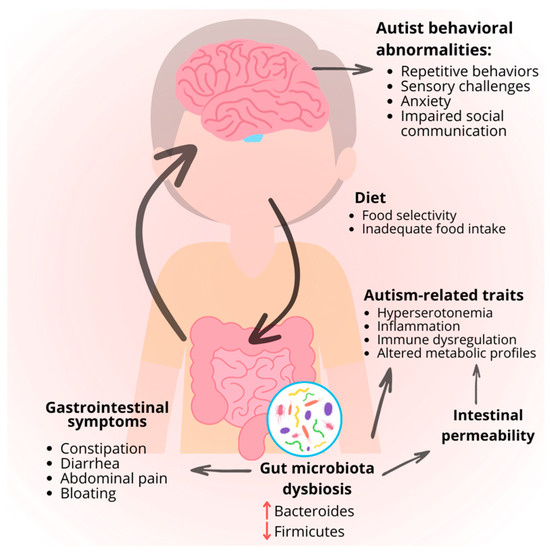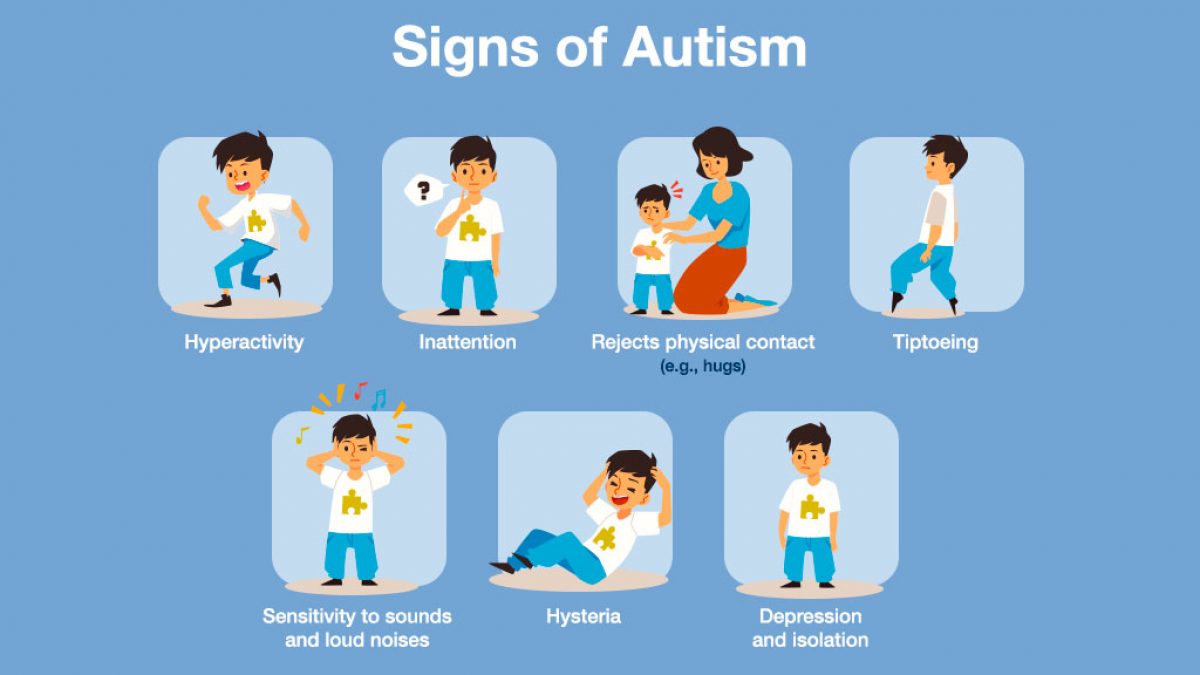Are social difficulties a sign to consider seeing an Aba Therapist near you?
Are social difficulties a sign to consider seeing an Aba Therapist near you?
Blog Article
Trick Symptoms And Signs to Identify in People With Behavioral Autism
When you encounter someone with behavioral autism, acknowledging vital symptoms and signs is vital. You could see obstacles in social communications and interaction, as well as a strong need for routines. Furthermore, sensory level of sensitivities can cause frustrating experiences. Comprehending these qualities can improve your assistance and interventions, but there's more to uncover concerning exactly how these habits manifest in everyday circumstances. Let's discover what these indications actually appear like.
Challenges in Social Communications
When you connect with a person on the autism range, you might see they deal with social hints and interaction. These challenges can make social interactions really feel overwhelming for them. You might see them preventing eye contact or standing also close or as well much away during discussions, which can create misunderstandings. They may not detect body movement or faces, making it harder for them to assess just how others are really feeling.
When they do involve, they could chat about their passions in fantastic detail without observing if you're interested. Understanding these obstacles can aid you approach interactions with empathy and patience, promoting a much more comfy environment for both of you.
Problem With Verbal and Non-Verbal Communication

Acknowledging these signs is necessary, as it aids you much better assistance and involve with people on the autism spectrum. By recognizing their communication challenges, you can promote extra meaningful links and provide an extra helpful setting.
Repetitive Habits and Routines
Communication challenges usually go along with various other signs of autism, such as repetitive actions and a solid preference for routines. You might discover that individuals with autism typically participate in certain, repeated activities, like hand-flapping, rocking, or repeating expressions. These actions can provide comfort and a feeling of control in a typically frustrating globe.
Regimens are equally vital; lots of individuals prosper when they follow a structured timetable. You might discover that changes to these routines can lead to considerable distress. For instance, if they have a daily routine of consuming breakfast at a details time or adhering to a particular route to institution, any type of interruption can trigger stress and anxiety.
Recognizing these patterns assists you recognize their habits and provide support. By suiting their requirement for routine and enabling recurring activities, you can develop a more comfy atmosphere that relieves their obstacles.
Sensory Level Of Sensitivities

Common Sensory Triggers
Sensory sensitivities can considerably impact life for people with autism, as specific stimuli commonly trigger overwhelming responses. Typical sensory triggers consist of loud sounds, brilliant lights, and solid scents. You may notice that unexpected sounds, like sirens or alarms, trigger anxiety or distress. Fluorescent lighting in stores can feel rough and uncomfortable. Appearances can also play a significant duty; harsh textiles or certain food structures may be intolerable for you. Furthermore, crowded places can overwhelm your detects, making it tough to focus or unwind. Understanding these triggers can aid you manage your environment much better. By knowing what influences you, you can take steps to lessen discomfort and enhance your day-to-day experiences.
Behavior Actions Explained
Recognizing your behavioral feedbacks to sensory sensitivities is necessary, as they commonly expose exactly how you connect with the globe. You could discover that specific noises, lights, or appearances overwhelm you, leading to anxiety or discomfort. When confronted with these stimulations, you may take out, cover your ears, and even respond aggressively. These feedbacks aren't simply quirks; they're your way of dealing with overstimulation. You might also find yourself looking for particular sensory experiences, like deep stress or silent environments, to aid ground on your own. Acknowledging these patterns aids you comprehend your demands far better and can guide just how you communicate them to others. By recognizing your sensory sensitivities, you can function towards developing a setting that really feels much more comfortable and manageable for you.
Coping Approaches Summary
Acknowledging your sensory sensitivities is just the initial step; now it's time to explore coping techniques that can assist you handle those experiences efficiently. Begin by producing a sensory toolkit tailored to your requirements. Developing an organized regimen can likewise supply predictability, lowering stress and anxiety around sensory overload.
Limited Passions and Emphasis
While numerous people establish a vast array of passions, those with autism commonly show restricted interests and an extreme focus on particular topics. You could observe that someone with autism can invest hours delving into their favored topic, whether it's a specific kind of train, a specific film, or a clinical concept. This extreme emphasis isn't just a pastime; it can become a main component of their identification and social interactions.
You might locate that conversations focus on these rate of interests, and they might have a hard time to participate in more comprehensive topics. For them, these concentrated rate of interests provide convenience and a a knockout post sense of proficiency. While it is essential to motivate expedition of new subjects, valuing their enthusiasms is equally vital. By understanding and recognizing these limited interests, you can promote an encouraging atmosphere where they feel valued and understood, permitting even more significant links and communications.
Emotional Policy Troubles
People with autism usually deal with obstacles in psychological law, which can be influenced by their intense concentrate on details interests. You might discover that when a person is deeply involved in a recommended task, they can experience solid feelings, whether enjoyment or irritation. This intensity occasionally makes it tough for them to shift visit site equipments or manage their sensations when points don't go as intended.

Variability in Developing Landmarks
When it pertains to developmental landmarks, you'll see that individuals with autism frequently show a wide variety of variability. Some might hit landmarks promptly, while others might hang back or progression at a various pace. You may see a child succeed in language skills but struggle with social interactions. This incongruity can be confusing, as conventional benchmarks do not constantly apply.
It's essential to recognize that each person's journey is one-of-a-kind. Some might create intricate abilities early, only to deal with challenges later on. Others could take longer to achieve basic landmarks yet after that thrive in particular areas. Observing these patterns can aid you comprehend their toughness and requires better.
Regularly Asked Concerns
Exactly How Is Autism Detected in Children and Grownups?
To identify autism in kids and adults, specialists evaluate actions, communication abilities, and social communications. They usually use standardized examinations, meetings, and monitorings to establish if an individual meets the requirements for autism range disorder.
Are There Various Kinds Of Autism Spectrum Disorders?
Yes, there are different kinds of autism spectrum problems, including Asperger's disorder and prevalent developmental disorder-not or else defined. Each kind differs in seriousness and attributes, so comprehending these distinctions can aid you much better assistance people with autism.
What Therapies Work for Individuals With Autism?
When thinking about reliable therapies for people with autism, you'll discover choices like Applied Habits Analysis, speech therapy, and occupational therapy. Each strategy can assist enhance interaction, social skills, and everyday working customized to individual demands.
Can Individuals With Autism Lead Independent Lives?
Yes, people with autism can lead independent lives. With the appropriate support, abilities training, and sources, you see this can aid them develop self-sufficiency, manage daily tasks, and grow in different settings, cultivating their self-reliance.
Exactly How Can Family Members Support Liked Ones With Autism?
You can support your liked ones with autism by developing an organized setting, urging their interests, practicing patience, promoting interaction, and promoting social skills. Celebrate their achievements, despite just how tiny, and construct a supportive neighborhood.
Although many people on the autism spectrum can use and recognize language, they usually deal with considerable challenges with both non-verbal and spoken interaction. Recognizing these indications is necessary, as it aids you far better assistance and engage with people on the autism range. You might notice that individuals with autism often involve in details, repeated actions, like hand-flapping, rocking, or duplicating expressions.Sensory level of sensitivities can considerably influence daily life for individuals with autism, as specific stimuli frequently cause overwhelming reactions.When it comes to developing turning points, you'll see that individuals with autism commonly show a broad variety of irregularity.
Report this page